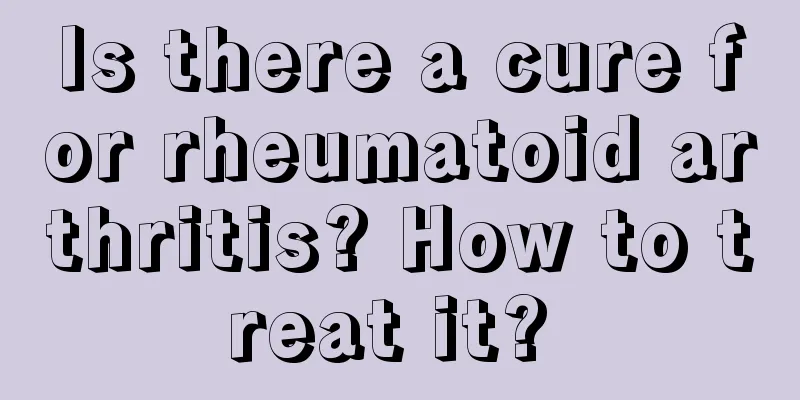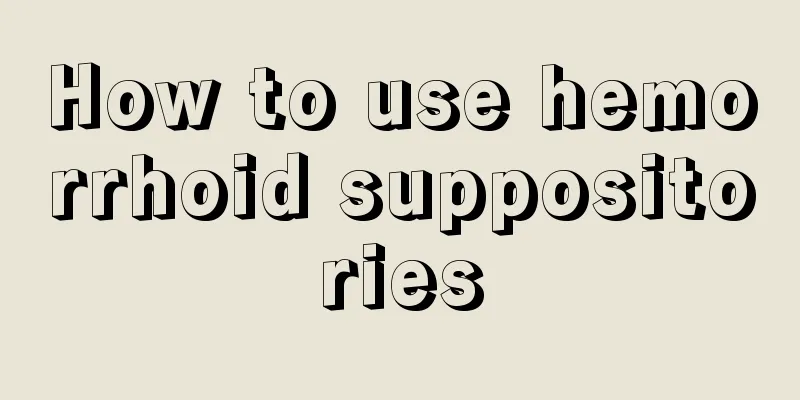Is there a cure for rheumatoid arthritis? How to treat it?

|
Suffering from rheumatoid disease is the biggest worry for middle-aged and elderly people, because the prevalence of this disease is very high, and the onset is slow, the pain is unbearable and makes patients suffer a lot. The treatment of rheumatoid disease is also a relatively long process. Therefore, rheumatoid patients are the last thing middle-aged and elderly people want to see. So, is there a cure for rheumatoid arthritis? How to treat it? 1. Patient education Help patients correctly understand the disease, build up confidence and patience, and cooperate with doctors in treatment. 2. General treatment For those with obvious joint swelling and pain, rest and joint immobilization should be emphasized. After the joint swelling and pain are relieved, attention should be paid to starting functional exercises of the joints as early as possible to relieve stiffness. In addition, auxiliary treatments such as physical therapy and topical medications can quickly relieve joint symptoms. 3. Medication The treatment plan should be individualized, and drug treatment mainly includes non-steroidal anti-inflammatory drugs, slow-acting anti-rheumatic drugs, immunosuppressants, immune and biological preparations, and herbal medicines. (1) Nonsteroidal anti-inflammatory drugs have anti-inflammatory, analgesic and antipyretic effects. They are the most commonly used drugs in the treatment of rheumatoid arthritis and are suitable for patients in all stages, including the active stage. Commonly used drugs include diclofenac, nabumetone, meloxicam, celecoxib, etc. (2) Antirheumatic drugs (DMARDs) are also called second-line drugs or slow-acting antirheumatic drugs. Commonly used ones include methotrexate, taken orally or intravenously; sulfasalazine, starting with a small dose and gradually increasing, as well as hydroxychloroquine, leflunomide, cyclosporine, auranofin, and total glucosides of white paeony. (3) Yunke, i.e. technetium [99Tc] methylene diphosphonate injection, is a non-excited isotope that has a rapid onset of symptom relief in the treatment of rheumatoid arthritis with minimal adverse reactions. Intravenous medication, 10 days as a course of treatment. |
<<: Cold urticaria symptoms, three most common
>>: What are the causes of rheumatoid arthritis
Recommend
How to grind sesame into powder
Sesame is actually a substance that we are very f...
Is cauliflower cool in nature?
Cauliflower is a cold food, which means that fema...
How long can you live with ovarian cancer
Ovarian cancer is a common malignant disease amon...
What are the effects of Jigeng
Many people may not pay much attention to the pha...
Is it okay to have the glans exposed outside for a long time?
When we are little boys, the glans is usually cov...
How to do rehabilitation exercises for frozen shoulder
Of course, the treatment of frozen shoulder shoul...
How long does systemic lupus erythematosus last?
For patients with systemic lupus erythematosus, d...
Is rheumatic autoimmunity easy to cure?
Everyone knows that rheumatism is caused by long-...
Several uses of baking soda
There are many things on the market that everyone...
What are the causes of liver cancer?
The cause of liver cancer is viral hepatitis, usu...
What dishes can be made with sweet potato flour
Sweet potato noodles can be eaten directly. In ad...
Brief discussion: What is the key to preventing cervical cancer
Gynecological diseases have always troubled the f...
Nursing measures for phlebitis
The care measures for phlebitis include keeping t...
Experts explain the symptoms of colon cancer that patients may experience
The symptoms of colon cancer may be different for...
Things that patients with lymphoma should pay attention to in their daily lives
What should patients with lymphoma pay attention ...









